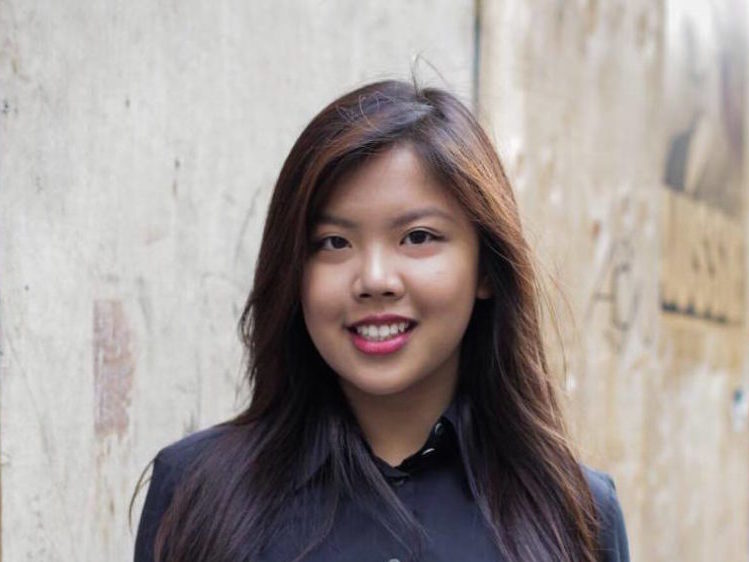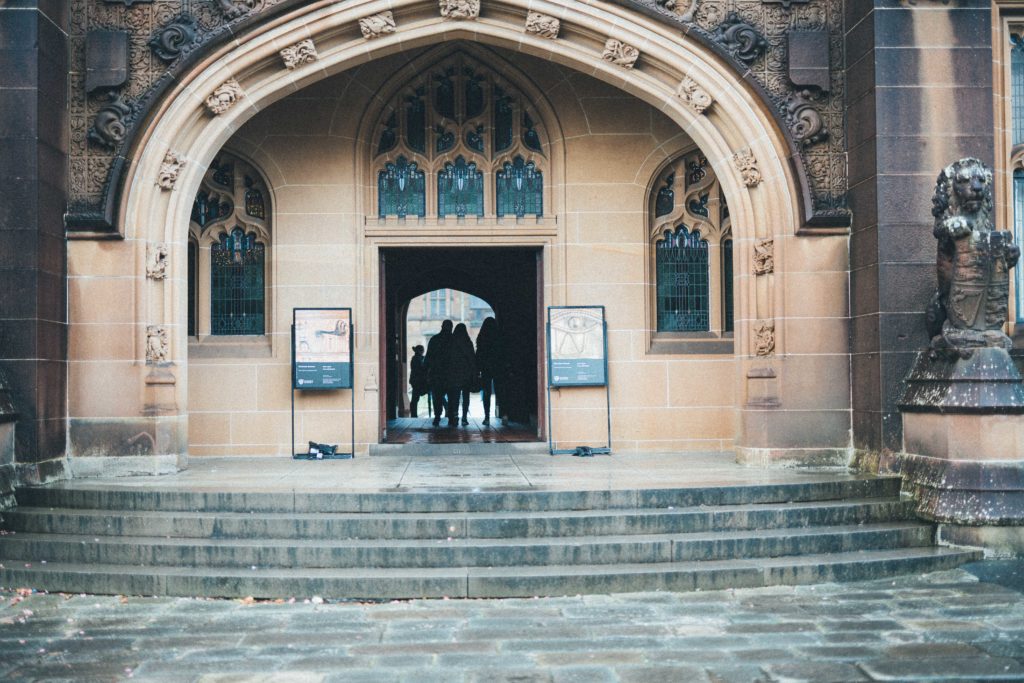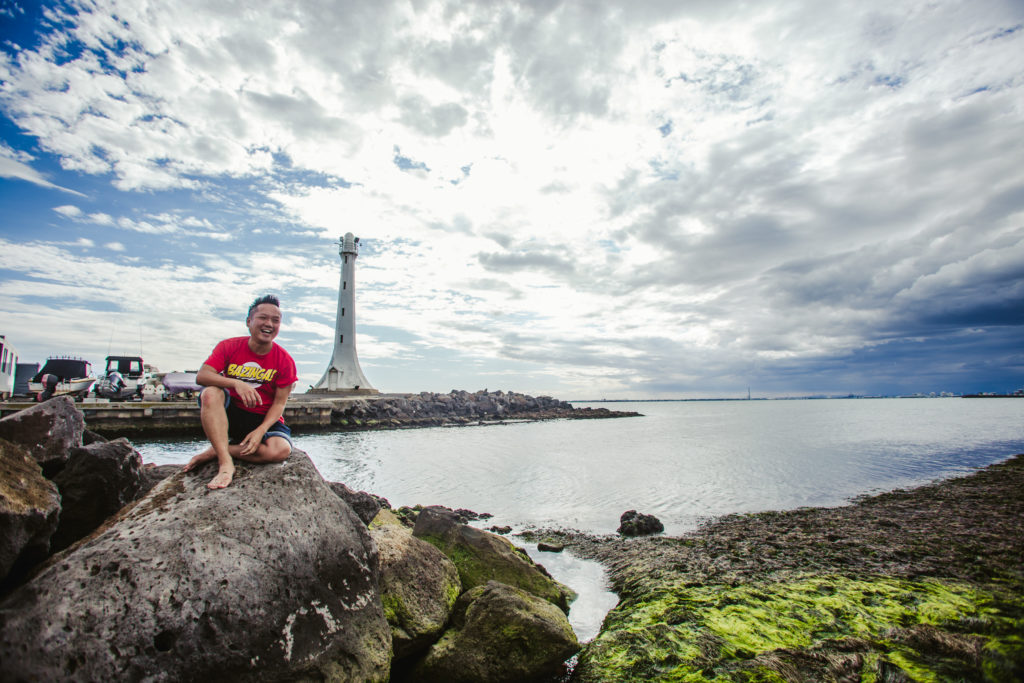“You have to know when to say ‘yes’ and when to say ‘no’. But mostly you have to know when to say ‘yes’” – Natalia Agus
Natalia Agus is a Chinese-Singaporean-Indonesian born, now Melbourne local, currently in her last semester of a Psychology degree at the University of Melbourne. As well as this, she is the National President of the ASEAN Youth Organisation of Australia, interning at the Aussie Hands Foundation, working part time in a smoothie bar and also as a freelance photographer. Needless to say, Natalia is busy.
More importantly, though, she is having fun and making the most of her time studying abroad. We caught up with her recently to find out how she has been able to achieve so much and what we found, was that it all comes down to one word – YES.
Read more – 7 Habits of International Students Who Make Tonnes of Friends
Be proud of the steps you have already taken
There are many different reasons that people choose to study abroad; from a quest for the unknown to the benefits of an overseas education. No matter the reason, you shouldn’t forget the bravery it takes to go overseas in the first place.
As Natalia experienced, it is not an easy process. There are a lot of hurdles, stresses and setbacks before you even reach your new home and this is the reason many people choose not to pursue it. You’ve taken a big step to be here and you should be proud and willing to put yourself out there to get the most from your experience.
“Confidence, not arrogance, in yourself is an attractive quality and helps you adapt to all the different situations you are about to experience. If ever you think you’re weird or you’ve acted strange, just know it is only in your head. Be confident in yourself and others will believe and want to be around you.”
Read more – A New Life in Australia
You can balance good grades and enriching life experiences
Some international students choose to stay at home and focus solely on studying, which is fine because this serves their ultimate goal of achieving high grades. Many other international students however, have a different focus and involve themselves in as many social activities as possible.
“In the end you have to do what makes you happy, but I think you should try and make the most of this opportunity because you don’t know what will happen tomorrow, next year or five years from now.”
Natalia strives for good grades and wants to show her parents that she is taking her studies abroad seriously. A positive work-life balance enables her to perform better academically and socially. When she has put in the effort at university she can relax with her friends without feeling guilty. The same goes that her friends make studying easier and more enjoyable.
Read more – Taking Care of Your Mental Health
It gets easier to say ‘yes’
The first few weeks are the hardest. You miss your family, you don’t have a close circle of friends you can rely on and sometimes you can feel very lonely. Guess what? You’re not the only one!
Nearly every international student has these feelings at one stage or another. For Natalia, she figured she was already out of her comfort zone, so she thought, why not put herself out even further? She joined her university’s student organisations, started talking to everyone in her classes and even went to networking events alone! If you know the expression ‘throwing yourself in the deep end’, Natalia put herself in the middle of the Pacific Ocean.
“Try not to be too scared. One thing leads to the next, so you never know what will happen.”
What Natalia found was that she started to recognise people and they started to recognise her. It was a quick transition from feeling alone, to feeling connected.
Read more – How to Combat Loneliness in a Foreign Country
Diversity is a good thing
Natalia commented on how it is quite easy to become friends with people of a similar background and not associate with anyone else; but then your experiences here won’t be vastly different from back home.
Before leaving, her parents encouraged her to make friends from various cultural and social backgrounds, because they knew this would result in an enhanced experience abroad.
Through putting herself out there, Natalia has learned and shared experiences that she wouldn’t have considered or known about if she had remained sheltered.
“There are some things that you can’t find out on Google. Like how to use a Myki or pay rent. That’s why it is good to have diverse friendships. We can talk to each other, learn from each other and ask questions even if they are about something as simple as public transport.”
Volunteering and working are ‘yes’ situations.
Early into Natalia’s first year abroad, she began volunteering at various events. This not only allowed her to meet new people and adjust to the working culture of a new country, but gave her relevant experiences to include on her resume, which later assisted her finding like-minded people and paid work.
Volunteering also helped her develop soft skills, something that she said she couldn’t have learnt simply from reading a book.
“Talking to strangers at this stage of your life, not only improves your English, but it allows you to make mistakes in a safe environment. As a young adult, the expectations are low. If you make mistakes, it’s ok. Use this to your advantage; it’s better to make mistakes and learn now, than make them later in a professional setting.”
Natalia also heard, through her friendship circle, about internships that she could apply for. She jumped at the chance to be involved and this added further credentials to her resume and life experiences. Another benefit of a diverse friendship network.
“Not only did I gain soft skills that have benefitted me in future roles, I also learnt what I wanted to pursue further and what I didn’t. All experiences at this stage help to give me a greater understanding of my future.”
Read more – How to Make The Most Out of Volunteering
Friendships make a good experience great
We have a couple of articles related to solidifying great friendships (here and here), and this is something Natalia believes is incredibly important to enjoying your time abroad. Australian culture can sometimes be intimidating and cause you to pull back into your comfort zone, but it is in these times it is important to keep saying ‘yes’.
Natalia kept saying ‘yes’ and through this, she grew diverse friendships that were able to help her in every situation. She has then in turn looked to help others who may feel unsure or not so confident.
“Without being forceful, it is good to invite people to events you’re interested in or go with them to something they are interested in; it helps them feel more confident and you can learn something too. I went with someone to an origami event, even though it is not something I would normally do. It was great fun and I got to learn new origami techniques!”
Natalia’s closing wisdom
Natalia plans to continue with a Masters degree and possibly pursue full time professional work; but she is open to many options. With so much going on in her life, we asked Natalia if she will ever stop saying ‘yes’? Her answer was a simple one.
“No.”



